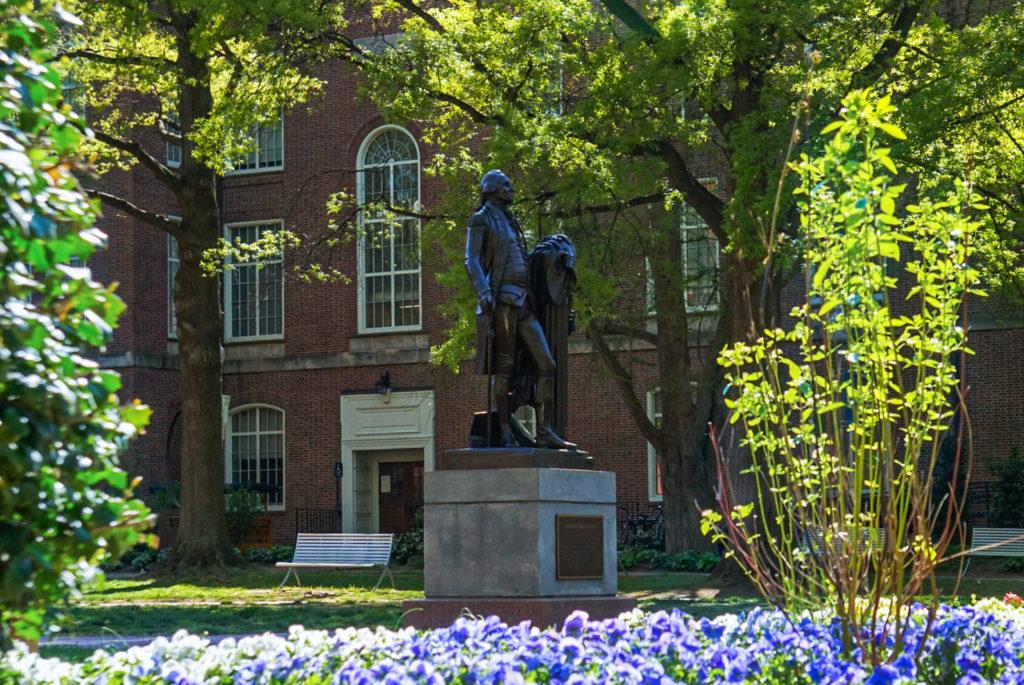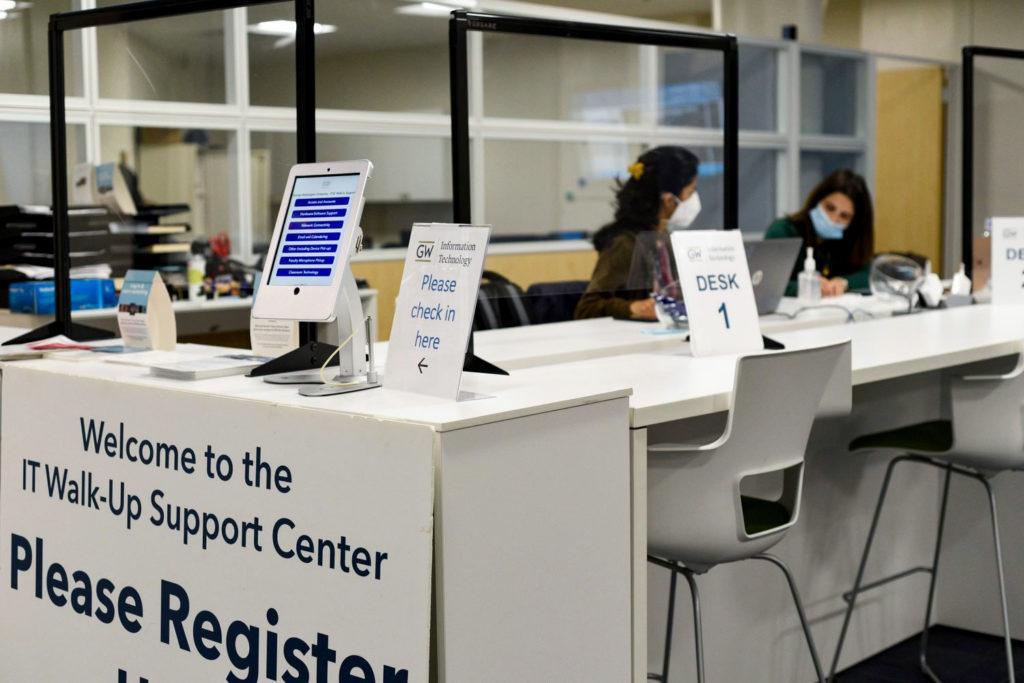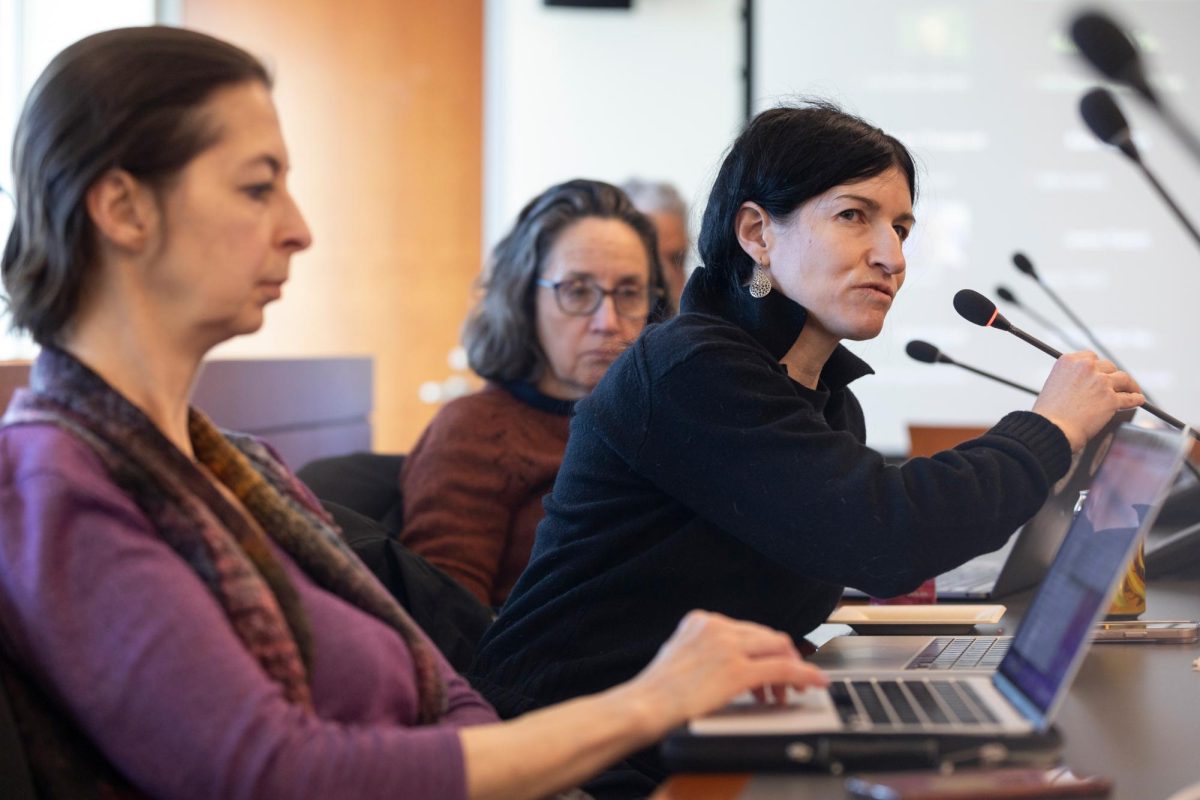The value of GW’s endowment grew by more than a third from fiscal year 2020 to FY 2021, but experts said the endowment could decline in value over the next few years due to rising inflation and a diminishing economy.
The market value of the University’s endowment grew from approximately $1.8 billion to $2.4 billion – a roughly 33.8 percent jump from FY20 to FY21, according to the University’s financial statements. But higher education and finance experts said inflation could threaten to cut those gains in the near future – the value of GW’s investments could fall because of rising inflation and declines in the stock market, possibly leaving the University with less funding for research, faculty and financial aid.
Most U.S. colleges and universities invest much of their assets in stocks and bonds to keep aside for investments in areas like campus development and public service projects. As a private university, GW has traditionally not disclosed where or how it invests its endowment funds.
University spokesperson Tim Pierce said GW has a policy to spend a portion of the endowment on its yearly operations, like research spending or building development, but reinvests the rest to guard against risks of inflation.
“The Board of Trustees establishes a spending policy that determines how endowment distributions are made,” he said in an email. “The spending policy is designed to balance current and future spending requirements by ensuring that a portion of investment return is distributed to operations in the form of payout for current expenditure with the remainder reinvested to shield against inflation.”
In October 2019, the Board approved a rule allowing officials to spend 4.5 percent of the endowment each year, down from the 5 percent threshold in previous years.
GW’s endowment growth ranked ninth compared to its 12 peer schools, according to data compiled by the National Association of College and University Business Officers.
Experts in higher education finance said concerns about rising inflation cutting into profits on investments could force officials to spend parts of their endowment on University research and development projects now before the endowment possibly becomes less valuable over the next few years.
David Yermack, a professor of finance and business transformation at the New York University Stern School of Business, said officials should not try to spend more of their endowment now because rising inflation will affect GW’s investments, and they should hold onto their assets for later on.
“The best advice is to do nothing,” he said. “What an investor should do is be diversified and then just hold your position through thick and thin and don’t trade in and out based on changing economic conditions.”
U.S. inflation rates are currently at their highest rate since 1981 – currently standing at about 8.5 percent – which has driven up the prices of goods and services and forced the Federal Reserve to jack up interest rates to stabilize the economy.
Yermack said the gains in endowments at most universities in the aftermath of the COVID-19 pandemic are probably an “anomaly,” and GW’s endowment will likely decrease in value as the economy continues to slow by the end of the current fiscal year. He said rising interest rates and inflation, coupled with “cooling” financial markets will likely harm the University’s investments.
“I think a lot of universities are going to see very bad returns for the current year that will more or less offset what happened in ‘21,” he said. “So I’d expect a big negative number for most schools for June 30, 2022, although there’s still two months to go, you know, anything can happen.”
Yermack said the Board has historically done a poor job of consulting with their communities on how they manage their endowments and finances. He said most major universities like GW have large groups of faculty who have experience in financial management, but the Board does not consult them when managing endowment investments.
“There’s accountability ultimately at the highest levels for choosing a strategy, choosing the managers and so forth, but the levels remove from the people making the decisions, and anyone who might actually challenge them and hold them responsible,” he said. “Like most nonprofits, that governance is pretty dysfunctional and universities don’t take a lot of accountability for the endowment performance.”
Charlie Eaton – an assistant professor of sociology and economics at the University of California, Merced – said GW’s endowment growth over the last year is “average” compared to other large universities around the country and all of GW’s peer schools.
He said university endowments have seen unusually large growth as institutions bounce back from the pandemic, and wealthier institutions have seen comparatively larger gains because they have access to more resources and capital to make investments in their endowments.
“The way the system works is the wealthiest institutions and the most elite institutions tend to have the highest rates of return in the long run,” he said. “So Harvard, Princeton and Yale have averaged around a 10 percent annual rate of return for the last 40 years, but smaller endowments and endowments for less prestigious institutions – including GW – have averaged closer to six or seven percent annual rates of return every year.”
GW’s endowment grew by about 1.35 percent in FY20 – rising from $1.779 billion to $1.803 billion – slightly below the industry average of 1.8 percent.
Eaton said inflation should not have a “substantial effect” on how university endowments grow or how officials spend them, because even though inflation is currently rising, long-term forecasts project that inflation will go down over the next few years. But he said if officials are concerned about rising inflation in the short term, they should spend more of their endowment sooner.
In May 2020, former University President Thomas LeBlanc promised not to tap into GW’s endowment reserves to make up for financial losses from the pandemic. Officials said using endowment funds could hurt the long-term financial state of the University.
“That said, if you’re worried about inflation affecting your endowment value, that’s actually an argument for spending more of your endowment now, while it’s worth more,” he said.
Eaton said officials should use the recent gains from their endowment to expand financial aid packages for students and decrease the cost of attendance for low-income students. He said GW has a reputation for enrolling higher-income students and using its endowment to attract lower-income students could help repair its reputation for not giving out high amounts of financial aid.
“GW is kind of in that space of tending to enroll students from better-off backgrounds, rather than from low-income backgrounds,” he said. “So one thing that GW can do, given that the benefits that it accrues through its endowment from tax exemptions, is they could expand financial aid and enroll more students from low-income backgrounds.”








